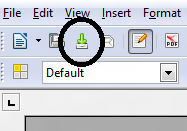It's interesting that Samsung has decided to announce the new ARM based chromebooks just after the Microsoft Surface price announcement and before the rumoured announcement if the iPad mini.
The chromebook is an excellent idea spoiled by reality - as I've said elsewhere the lack of reliable always on internet makes its use problematical in a lot of locations, and to be honest, after my experiments with the seven incher I can confidently say a no name android table with a keyboard provides a functionally equivalent experience for a lower price, and you can still type on the bus.
So what's the use case for a chrome book?
A low cost laptop for the kids to do their homework on ? Not that stupid a scenario as they're probably relatively unbreakable and if one dies you just get another one the same.
And that's the key - the education market, standard plug interchangeable hardware, the ideal for a repeatable and consistent environment - the thing that's proved difficult to engineer in the iPad world ...
The chromebook is an excellent idea spoiled by reality - as I've said elsewhere the lack of reliable always on internet makes its use problematical in a lot of locations, and to be honest, after my experiments with the seven incher I can confidently say a no name android table with a keyboard provides a functionally equivalent experience for a lower price, and you can still type on the bus.
So what's the use case for a chrome book?
A low cost laptop for the kids to do their homework on ? Not that stupid a scenario as they're probably relatively unbreakable and if one dies you just get another one the same.
And that's the key - the education market, standard plug interchangeable hardware, the ideal for a repeatable and consistent environment - the thing that's proved difficult to engineer in the iPad world ...


